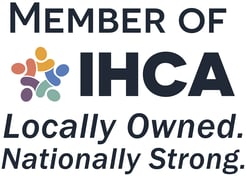Blood clots are gel-like masses that form when blood gets stuck together. Clots play a crucial role in stopping bleeding after an injury. Still, they can also be a health concern if they form inappropriately inside blood vessels, potentially leading to blockages and causing serious health conditions such as deep vein thrombosis (DVT) or pulmonary embolism. Unfortunately, older adults like your parents are at risk of developing unhealthy blood clots, and if left unchecked, it can lead to heart attacks or strokes. So, what are some of the best ways to avoid blood clots and how could in-home care providers help with the issue?
Here are a few things you can help your seniors do to avoid these gel-like masses.
Keep Moving Your Body
One of the worst things your loved one can do is to quit moving around. Exercise is crucial for a senior for so many reasons. It helps manage chronic conditions and battles inflammation, but by moving around, you keep the blood flowing in and around the body, preventing blood clots from forming. Your senior doesn’t have to run, but by walking and stretching daily, your senior can have a hugely beneficial impact on your loved one.
Focus On Being a Healthy Weight
Being overweight can lead to unnecessary stress on a senior’s body. It can lead to joint pressure, extra inflammation, and blood clots. All of this can be avoided if your senior moves around and focuses on a well-rounded diet to maintain a healthy weight. Obesity increases the risk of blood clots primarily due to several factors. Excess body fat can lead to chronic inflammation and changes in the levels of certain substances in the blood, promoting the formation of clots. Having a blood clot can impair blood vessel function, reduce blood flow, and alter the balance of clotting factors.
Keep Legs Elevated
Even if your senior loved one doesn’t feel like they need to, you should encourage them to elevate their legs throughout the day. The best way to do this is by raising the feet, not the knees, and avoiding crossing their legs. Keeping their feet raised above their heart level, can help keep blood from going there, which is a place where blood clots are always a concern.

In-Home Care Can Monitor Medication and Choose the Right Clothing
Sometimes a side effect of medication can be blood clotting, and it’s important to note when this kind of thing happens, and it is essential for a senior to ensure their doctor knows. On the other hand, medication can also prevent a blood clot from forming or manage one that has already been there. If your senior is eating a large amount of vitamin K, they may be at risk of forming blood clots which will need to be managed with medications. Always be sure a senior is talking to their doctor about diet and overall health to get the right medications to enhance their quality of life.
A senior should choose loose clothing for multiple reasons. It is more comfortable and easier to get in and out of it and is great for avoiding blood clots. Loose clothing will never restrict blood flow, which helps prevent blood clots. Their in-home care aide could help with the proper selection.
If you or an aging loved one are considering In-Home Care Services in Forest Heights TN please contact the caring staff at Senior Solutions Home Care. (865) 539-5224
Senior Solutions Home Care is a Trusted Home Care Agency serving Knoxville, Old City, Fort Sanders, Old Sevier, Edgewood, North Knoxville, Forest Heights, Sequoyah Hills, Knox County, and surrounding areas.
Over the years, we have expanded, providing service in all 95 counties throughout Tennessee, and we now have a growing presence in Georgia.
Senior Solutions is recognized as a top 5% independent agency and a three-time Inc. 5000 honoree in 2018, 2019, and 2020. These types of awards matter to us because they show growth in our goal of eventually touching a million lives. We’re excited to continue that growth and to touch even more families with our commitment to quality care!
- Getting Laundry Help From a Senior Home Care Provider - March 11, 2025
- Benefits Of In-Home Care For Seniors With Dementia - February 24, 2025
- Tips For Helping A Senior Parent Manage Their Medications - February 10, 2025



